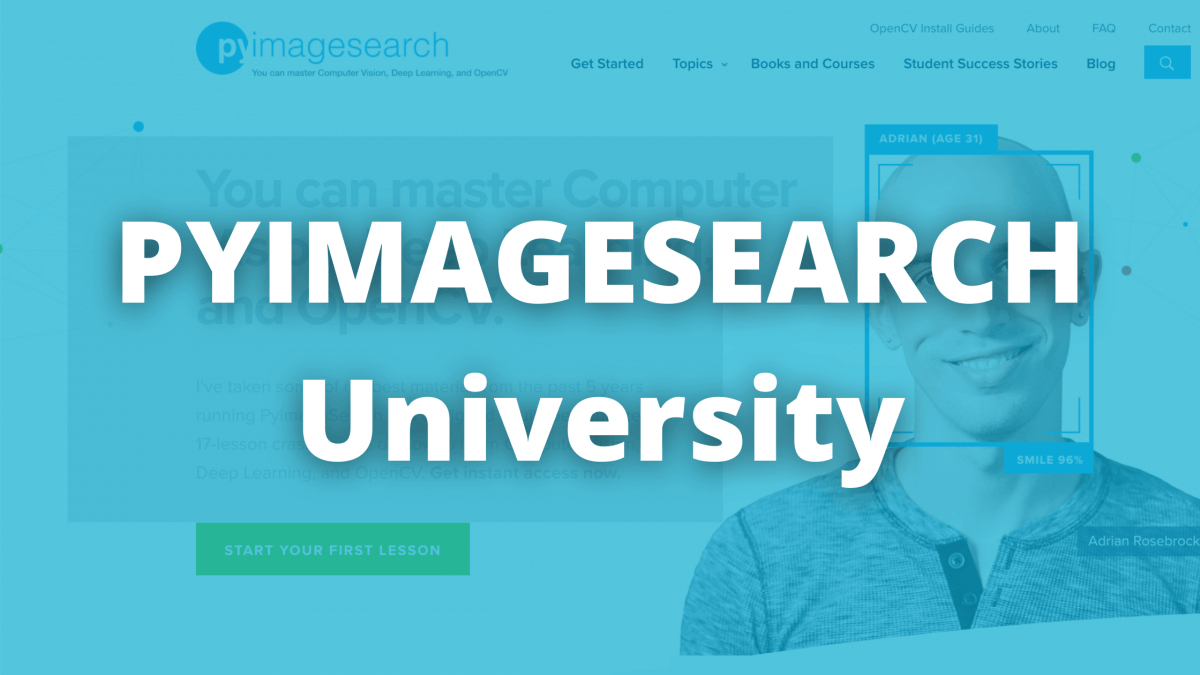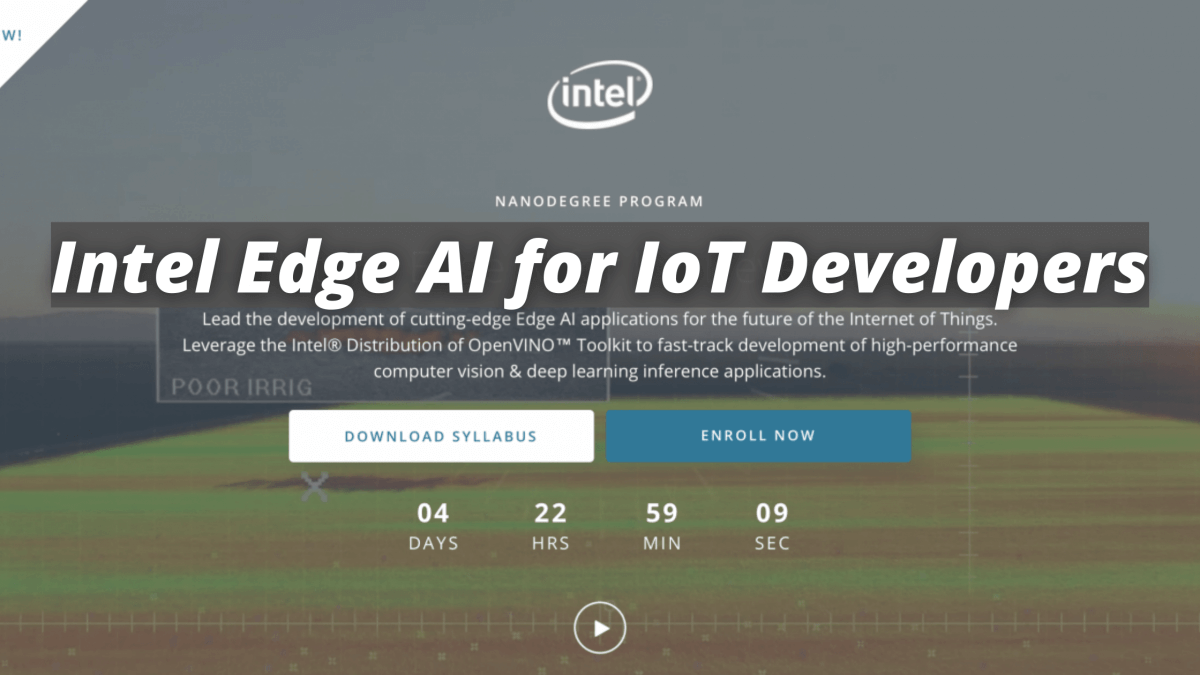PyImageSearch University Review - Worth it?
The PyImageSearch University is the new membership plan by Adrian Rosebrock designed to teach you Computer Vision, Deep Learning, and OpenCV!
It was released with a 7 day free trial. I decided to enroll in the trial and write a review on it after a week!
Motivation
Lately, I received many messages from complete beginners who find my courses "amazing" but "too advanced" for them. I totally get that: prerequisites are fundamentals to building strong foundations and going far.
As many people already cover them, I chose to help those who already had solid foundations, and wanted to go further.
In this article, I'll give my review of the PyImageSearch University and tell you if I think you should enroll, or not!
⚠️ Worth Mentioning - This article doesn't include affiliate links, and isn't sponsored in any way. Adrian doesn't know me, and I don't know him. The following is just my humble opinion on his recent product.
I'll answer the questions:
- Who is the university for?
- What's inside?
- When will you be Computer Vision ready?
- What libraries are used?
- Are the certificates useful?
- Conclusion & Recommendations: Should you enroll?
Who is the University for?
The university is designed to help complete beginners in Computer Vision get started.
It is meant for you if:
- You can code in Python
- You understand Linux basic command lines
- You are okay with high school maths.
- You don't know OpenCV, or so-so.
Inside, there are 2 products:
- A Basic Bundle, made of a PDF book and code.
- A University Access, made of video courses covering the most important Computer Vision topics.
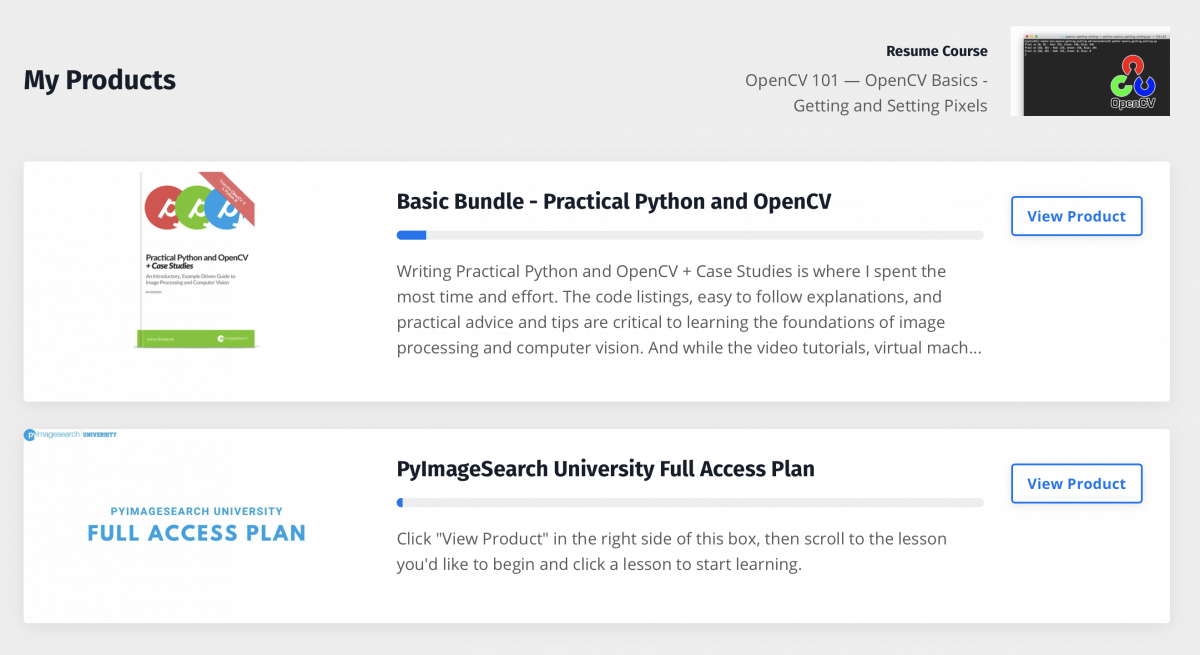
👉 Before going any further, I'd like to emphasize that this is for beginners. If you already handle Computer Vision, PyImageSearch offers more advanced courses , and so does Think Autonomous .
Actually, if you feel like you already understand AI, Machine Learning, and Computer Vision, but don’t find a place to take your skills MUCH FURTHER, I invite you to receive my daily emails where I teach engineers how to become Cutting-Edge Engineers. You’ll receive career tips, learn the stories, and get advanced content to learn how to get your dream job in the cutting-edge.
Receive the private emails here.
Back to the University, if you're a complete beginner, let’s see what’s in there for you.
Let's start with the Basic Bundle...
First of all, you'll get a 157 pages long introduction to Computer Vision as a PDF. Inside, you'll find a lot of information on how to load an image, what are gradients, histograms...
With that, you'll have case studies and python codes (eye_tracking, ...).
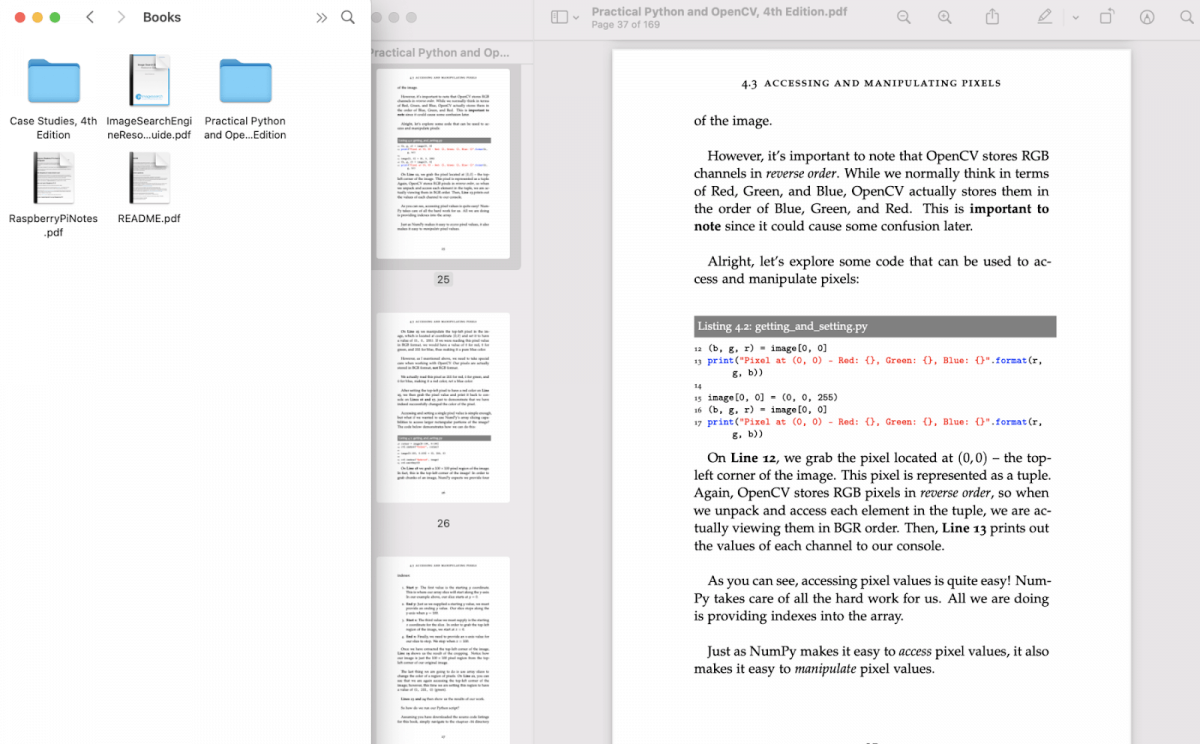
👉 This is well written and interesting, but I'm personally not a fan of pdf books, as I never manage to read them.
So instead, I spent more time on the courses.
What's in the courses?
In the courses, you'll have a series of videos covering the main topics of Computer Vision.
It starts with OpenCV Basics (image processing, contours, histograms, fiducials and markers)...
... and then dives into Neural Networks (neural nets, deep learning, optimization, CNNs, hyperparameters).
Once you master these, you can work on applications such as Face Recognition, Image Adversaries, Object Detection, ...
Worth mentioning: every month, a new course is added.
Which means that the value also increases.
A course looks like this:
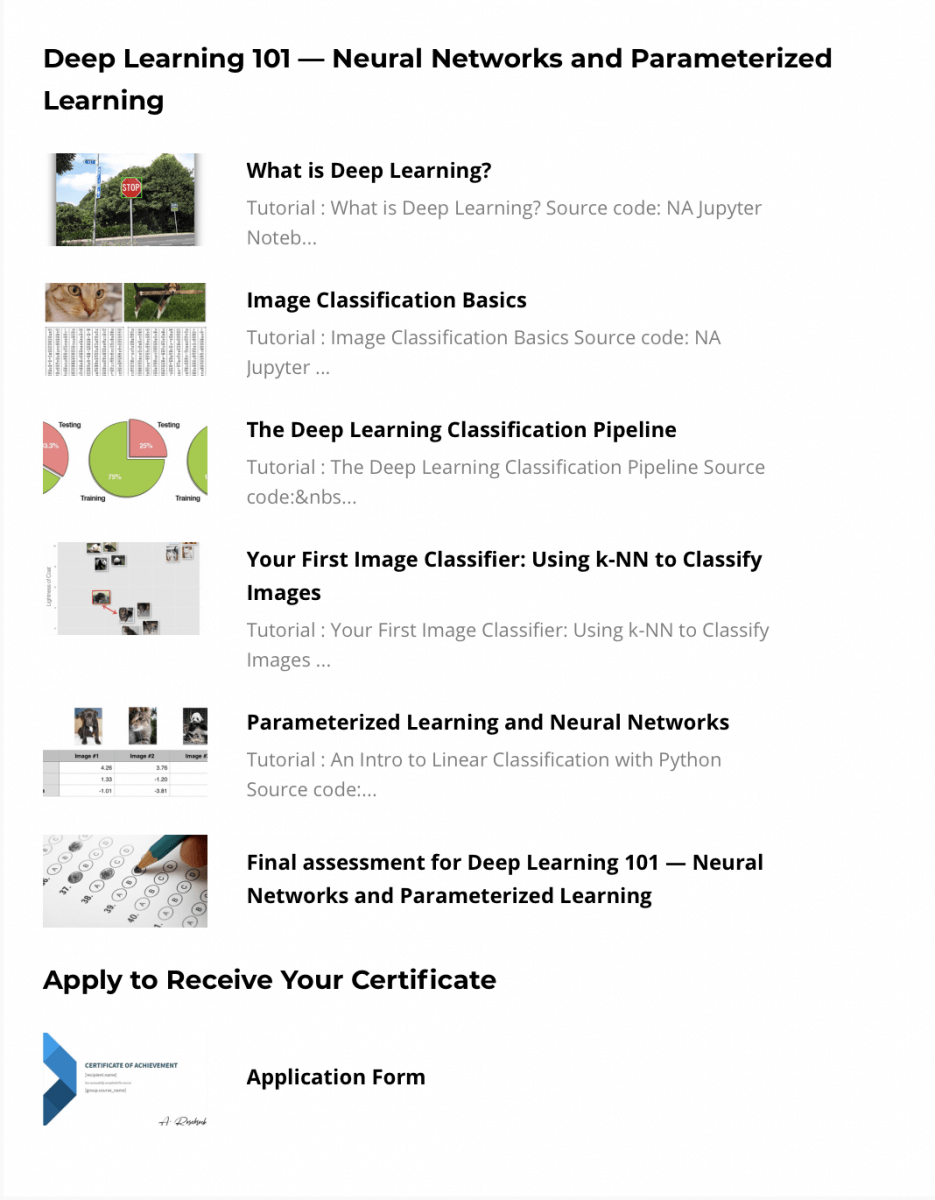
Let's take a look at what's inside...
About the Content & Code
Each video is linked to Colab code...
The approach is the one I adopt in my courses: no installation, no downloading anything; just code on your web browser. I am a big fan of it, as you can directly focus on the "value" content.
When you click on any topic, you'll have a 5-30 minutes long video covering the content, followed by a quizz.
If you start from scratch, you'll learn how to work with images, you'll have videos, the book, quizzes, and google colab exercises.
👉 Explanations are clear, and the whole thing is convenient to follow.

When will you be "Computer Vision ready"?
👉 I estimate a course to last 30 min to 3 hours, depending on how serious you want to be.
The total length of all videos is about 30 hours (May 2021).
For now, there are 19 courses.
➡️ If you understand about 75% of the university, I would say you have built the computer vision prerequisites for more advanced content.
Libraries: Keras & OpenCV
In this course, you will learn to use OpenCV for Computer Vision, and Keras for Deep Learning.
Tensorflow is not used or taught other than for integrating Keras (unless I missed it).
👉 In my opinion, PyTorch would have been a more interesting choice, but it became super-hot only recently.
Are the certificates useful?
👉 I don't believe you'll ever convince anyone to hire you because you show them a paper telling you can load an image.
Especially in the case where certificates are about really basic content.
However, as beginners, they can be helpful in helping you stay motivated and continuing your journey.
Just don't expect anything else out of it.
A few words about Adrian
A few years ago, I decided to learn about Computer Vision.
And obviously, I couldn't ignore Adrian Rosebrock.
While working as a self-driving car engineer, this is where I first learned how to use YOLOv3 with OpenCV, 1549% faster than the alternatives!
👉 If there is one thing you cannot doubt, is how much Adrian helped people.
Added to that, one word: consistency.
For the past 6 years, Adrian has been publishing super-qualitative blog posts every Monday without missing a day!
Being a daily email writer, I know what it takes to "never miss".
Hats off. 👏🏼
Conclusion - Is it worth it? Should you subscribe?
To conclude, I'd say that the PyImageSearch University is a great way to get started in Computer Vision. It's more convenient than following blog posts, and you have a hands-on approach with practice everywhere.
After that, you'll have the choice between 3 plans:
- Monthly: 19$/month
- Yearly: 190$/year
- Lifetime: 395$
I recommend taking the monthly offer.
➡️ Start with the University, stick with it as long as you need...
You'll probably finish in about 3 months, so it wouldn't be a good idea to enroll for a year, or lifetime.
Instead, use this investment on more advanced content when you're ready.
⚠️ Most of the content can indeed be learned for free on PyImageSearch's blog posts.
You're not paying to learn how to load an image, you're not paying for a certificate, you're paying to follow a curriculum already designed for your success, among the hundreds of existing blog posts out there.
19$ or hours designing your own curriculum and scrolling the web? You decide, but if you're beginning, I find it totally worth it.
➡️ If you’re a beginner, I recommend to check out the University here: https://www.pyimagesearch.com/pyimagesearch-university/
➡️ If you’re not? I have been building advanced courses for engineers who feel like they reached a ceiling, but know that there is more to what they can do.
I invite you to check out the Think Autonomous’s platform to learn about some of the hottest topics such as LiDAR, 3D Deep Learning, SLAM, Tracking, 3D Computer Vision, and more… It’s all here!
Moreover you can join the Think Autonomous mailing list where I teach you everyday how to become a Self-driving cars Engineer.

